The first day of the study tour was introductory and aimed to provide participants with insights into the management of research, education, and university administration.
Afterwards the participants were greeted with a warm welcome from Professor dr hab. Krzysztof Szoszkiewicz, the Rector of Poznan University of Life Sciences (PULS). This session set the tone for the study tour, emphasizing the university's commitment to fostering international collaborations and sharing best practices to facilitate knowledge sharing and cooperation among partners in the UniClad project.
The following speakers made presentations for the program participants: Ms. Joanna Cybulska, Coordinator of the Doctoral School, Dr. Michał Gazdecki from the Faculty of Economics, Professor dr hab. Włodzimierz Nowak, the Erasmus+ Coordinator, Professor dr hab. Agnieszka Baer-Nawrocka, the Dean for Student Affairs at the Faculty of Economics, Ms. Katarzyna Trzeciak, the Chief of the Project Management Office.



After lunch, the participants embarked on a pleasant walk through the dendrological garden and afterwards received a guided tour to the Museum of PULS led by Ms. Danuta Dados, the Museum Curator.

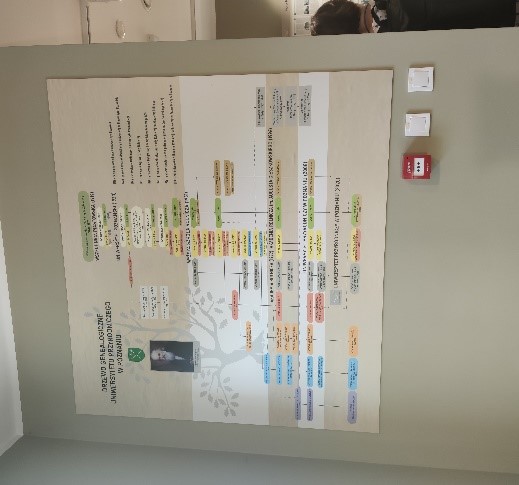
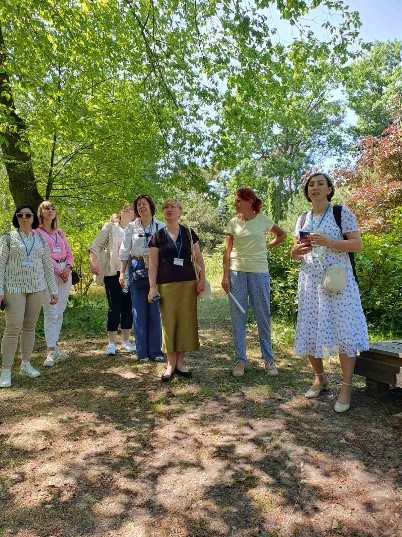
The second day of the study visit was held in Łukasiewicz - Poznań Institute of Technology (PIT). It is a new, multidisciplinary scientific and research unit, operating on an international scale. Łukasiewicz PIT provides attractive, comprehensive, and competitive business solutions in the fields of automation, chemicals, biomedicine, ICT (Information and Communications Technology), materials, and advanced manufacturing. With 8,000 staff and 28 research institutes located in 12 cities across Poland, they are the third largest research network in Europe.
PIT is represented by several areas of expertise: Łukasiewicz - Institute of Logistics and Warehousing, Łukasiewicz - Wood Technology Institute, Łukasiewicz - Industrial Institute of Agricultural Engineering, Łukasiewicz - Metal Forming Institute, Łukasiewicz - Rail Vehicles Institute „TABOR”. The research centers of the new institute operate in the areas of wood technology, metal forming, rail vehicles, agricultural and food technology, logistics and information technologies. The Study Tour participants had the opportunity to meet and discuss with the Centre’s experts who provided information on clustering, networking, cooperating in value and supply chains and networks.



During the third day the participants took part in a guided tour of the Poznan guild. In the course of it, they learnt how it works, its structure and the ways in which food producers, wholesalers, importers and agricultural producers can participate.
Wielkopolska Gildia Rolno-Ogrodnicza S.A. is a modern wholesale market for fruit, vegetables, foodstuffs, live and artificial flowers, floral accessories and decorative articles.

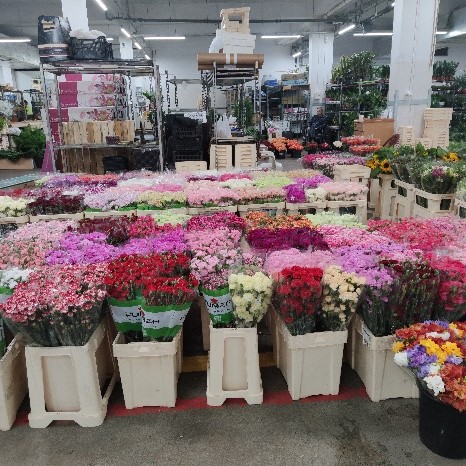
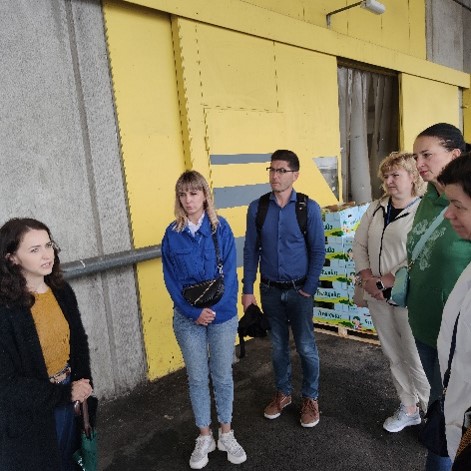
In the afternoon the project’s participants visited the the Centre of Wood Technology, which carries out R&D works and projects in the field of wood industry, and comprehensively deals with the issues of wood processing, its application and the creation of new composites based on the material.
The participants of the Study Tour visited divisions and laboratories of the Centre, were introduced to the activity of following departments: Department of Prototypes and Product Development, Testing Laboratory of Wood, Wood- Based Materials, Packaging, Furniture and Constructions and the Financial Department. The participants had the possibility to meet and discuss with the heads and members of the research groups, such as: Research Group of Strategic Analyses for the Wood Industry, Research Group of Composite Technologies, and Research Group of Bioenergy and Wood Chemical Conversion.
At the end of the day, in PULS were presented the lectures: “Innovation brokering process as a part of agricultural innovation system in Poland” by Przemysław Lecyk from National Innovation Broker, Agricultural Advisory, Centre in Brwinów, Poznań Branch and “New functional foods developments and implementation in cooperation of the University with industry” by Prof. UPP dr hab. Joanna Kobus-Cisowska, PULS, Department of Food Science and Nutrition.
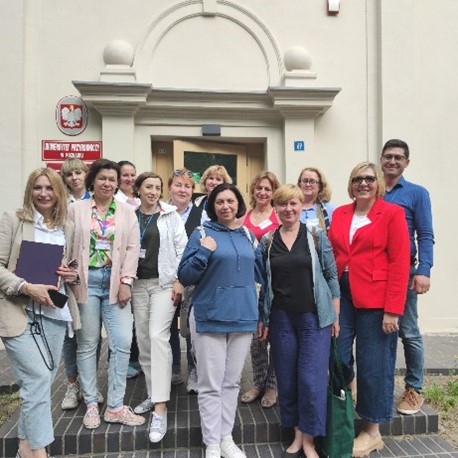


The next dat participants of the study visit were in Rolniczo - Sadownicze Gospodarstwo Doświadczalne Przybroda, one of the ten Agricultural Experimental Plants of the Poznan University of Life Sciences. The farm is multidirectional and includes agricultural, livestock and fruit production, as well as a functioning agricultural biogas plant. Agricultural production is geared towards the cultivation of commodity cereals, industrial crops and the production of roughage for the farm's own livestock. Livestock production is mainly focused on the breeding of black and white dairy cattle. Orchard production, on the other hand, is mainly based on apple tree plantings and also includes almost all species of fruit trees and bushes grown in our climatic zone.



Two very interesting presentations were proposed to the participants in the second part of the day. Rafał Lipiński from Lely told us about the innovations in milk production. Company Lely is an international family business in the agricultural sector, founded in 1948. Lely's main focus is innovation in agriculture. They are the creators of many inventions, such as, among others: finger wheel rake, disc spreader, a uniquely designed tedder tine which turns crop faster and evenly. In 1992 they introduced a prototype of the Lely Astronaut milking robot. Farmers acknowledge this is as the most important invention of the 20th century for dairy farmers. Every day, tens of millions of milk are milked using our Lely Astronaut milking robots. Thousands of cows are fed by our feed robot – Vector. They are helping millions of farmers to manage their farms in a sustainable, profitable and enjoyable way of farming. We are constantly looking to the future. Structurally, they are divided into Clusters. Poland belongs to Cluster North East. In Cluster they have two offices: in Fredericia, Denmark and Lisi Ogon, Poland. Company provides sales, technical and farm management support to our distributors, the Lely Centers.
Izabela Lipińska from PULS told about Food clusters in Poland. Agri-food clusters in Poland have gone through three stages: organisation, flourishing and decline. Few of the entities that have emerged are still operating as they developed some 1o years ago. Some of the cluster linkages are completed, others rely on the interaction of individual members. PULS continues to participate in various linkages, as a scientific and research institution. Lack of financial support and the lack of a cluster law and its subjectivity are the main obstacles to the operation and development of cluster activities.
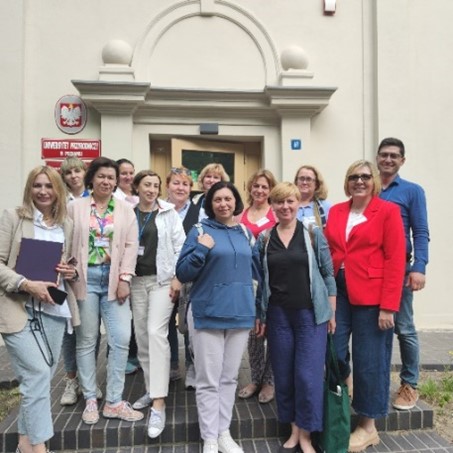
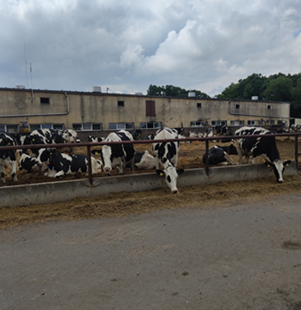

The final day of the study visit was at the Agri-Food Economics Experimental Laboratory (A-FEEL), PULS. Ewa Kiryluk-Dryjska, Prof.of PULS, Head of the A-FEEL, told that the main scope of interest of the Lab’s members is the implementation of eye- tracking and EEG research to the behavioral economics, with a special focus on the agri-food economics. The Laboratory is equipped with 32-channel Brain Products EEG cap and Tobii Pro Nano eye-tracker. The Lab has also a functional Focus room and Game-theory Lab where experiments and focus research are conducted.
Olga Grabowska-Chenczke from PULS said that A-FEEL team conducted a 4-step research study on the various aspects of Food Banks’ perception, food donation, donation willingness and several behavioral factors that impact charity attitudes and behaviors. The presentation shows each of 4 steps of the research, among which one was based on eye-tracker session of watching 4 posters on Food Banks.


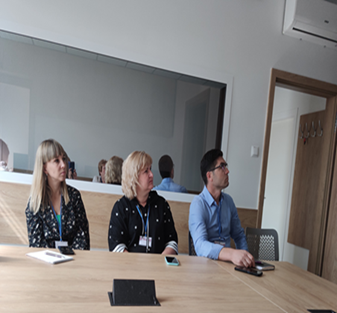
At the end of the final day it was organized the evaluation of the study tour. All participants received the certificates.




